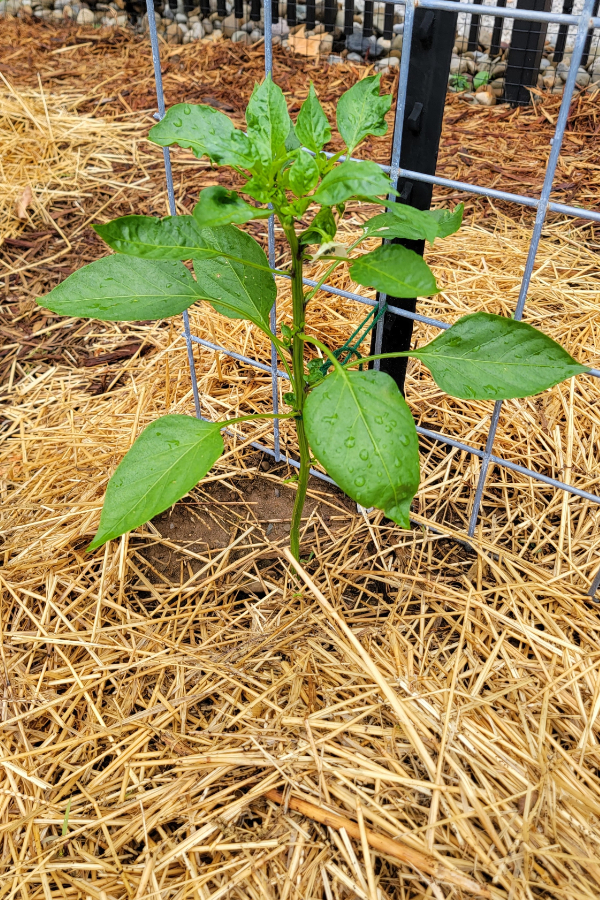Best Fertilizers for Peppers: Optimize Plant Health and Return
Best Fertilizers for Peppers: Optimize Plant Health and Return
Blog Article
Organic Vs. Synthetic Fertilizers: Which Is Best for Nurturing Healthy And Balanced Pepper Plants?
In the world of nurturing healthy and balanced pepper plants, the option between synthetic and natural fertilizers stands as a pivotal choice with far-reaching implications. While both options objective to provide essential nutrients to sustain plant growth, the subtleties of their influence on the dirt, plant health, and the environment stimulate an argument that mirrors throughout the horticulture community. Understanding the unique advantages and possible risks of each fertilizer type is crucial for pepper farmers seeking to optimize their yields while maintaining a lasting and eco-conscious approach.
Benefits of Organic Plant Foods
Organic plant foods provide an environmentally-friendly and sustainable technique to beneficial pepper plants, offering crucial nutrients without making use of artificial chemicals. These all-natural fertilizers are stemmed from organic resources such as garden compost, manure, bone meal, and seaweed, promoting soil health and biodiversity. Unlike synthetic plant foods, organic choices launch nutrients slowly, making sure a steady and balanced supply for pepper plants to thrive.
One substantial benefit of natural plant foods is their ability to enhance dirt structure and water retention. By improving dirt health, organic plant foods advertise useful microbial task, which aids in nutrient uptake by pepper plants. Furthermore, natural plant foods decrease the danger of chemical run-off, protecting water sources from air pollution and securing the setting.
Furthermore, organic plant foods add to long-term soil fertility by promoting the growth of useful dirt organisms. These organisms help break down organic matter, releasing nutrients in a form that is conveniently obtainable to pepper plants. best fertilizers for peppers. By cultivating a healthy and balanced soil ecological community, natural fertilizers sustain lasting pepper farming techniques that profit both plants and the atmosphere
Disadvantages of Artificial Fertilizers
Artificial fertilizers, in comparison to their organic equivalents, present different disadvantages when made use of to nourish pepper plants, impacting both plant wellness and environmental sustainability. One significant disadvantage of synthetic plant foods is their tendency to seep nutrients from the dirt rapidly.
Additionally, the overuse of synthetic plant foods can add to water contamination. Excess fertilizers not soaked up by plants can clean away right into water bodies, causing eutrophication, where algae blooms diminish oxygen levels in the water, harming marine life. In addition, synthetic fertilizers are typically originated from non-renewable resources, such as fossil gas, adding to carbon emissions and ecological degradation throughout their manufacturing.
Nutrient Absorption Comparison
Effective nutrient absorption plays a critical role in the total health and development of pepper plants. When comparing organic and artificial plant foods in regards to nutrient absorption, organic plant foods have the benefit of offering an extra well balanced and slow-release source of nutrients (best fertilizers for peppers). Organic plant foods contain a range of macro and micronutrients that are not just valuable for the plants however likewise advertise healthy and balanced dirt microbial task, which assists in nutrient uptake. On the various other hand, synthetic fertilizers typically give a quick release of nutrients, which can cause seeping and runoff, resulting in lower nutrient absorption rates by the plants.
In addition, organic fertilizers improve soil framework and water retention capacity, allowing pepper plants to gain access to nutrients a lot more effectively. This enhanced soil high quality helps with root development, allowing much better nutrient absorption. Synthetic fertilizers, although initially boosting plant growth as a result of their high nutrient focus, might impede long-lasting nutrient absorption by degrading soil health over time.
Environmental Impact Considerations

On the other hand, artificial plant foods, although commonly more immediately readily available and focused to plants, can have destructive impacts on the environment otherwise used appropriately (best fertilizers for peppers). Their production needs high energy inputs, causing greenhouse gas emissions and adding to environment modification. Moreover, the drainage of excess synthetic plant foods can pollute water resources, causing eutrophication and damaging water ecosystems.
Ideal Fertilizer Practices for Peppers
To attain this, it is crucial to adhere to best fertilizer techniques tailored pop over to these guys to the specific needs of pepper plants. One essential practice is to carry out a soil examination before applying any type of fertilizers.
An additional crucial method is to fertilize pepper plants at the correct time. Normally, peppers gain from getting fertilizer at planting and after that once more when they begin to flower. Over-fertilizing can result in nutrition inequalities and harm the plants, so it is vital to adhere to suggested application rates.
Additionally, selecting a well balanced plant food with an NPK proportion that suits pepper plants' needs is essential. Organic fertilizers, such as garden compost or manure, can be outstanding choices as they launch nutrients slowly and boost soil framework with time. Artificial plant foods can provide a fast nutrient increase when required. Eventually, combining synthetic and organic fertilizers deliberately can help nurture healthy and balanced pepper plants while minimizing ecological impact.
Verdict

Organic fertilizers use a lasting and environmentally-friendly approach to nourishing pepper plants, offering vital nutrients without the use of artificial chemicals. Unlike synthetic fertilizers, organic choices release nutrients slowly, making certain a well balanced and stable supply for pepper plants to grow.
Artificial fertilizers, in contrast to their organic counterparts, present different drawbacks when utilized to nurture pepper plants, influencing both plant health and wellness and ecological sustainability. When contrasting organic and synthetic fertilizers in terms of nutrient i thought about this absorption, organic fertilizers have the advantage of offering a much more balanced and slow-release source of nutrients.Additionally, organic fertilizers improve soil framework and water retention capability, allowing pepper plants to access nutrients extra effectively.
Report this page